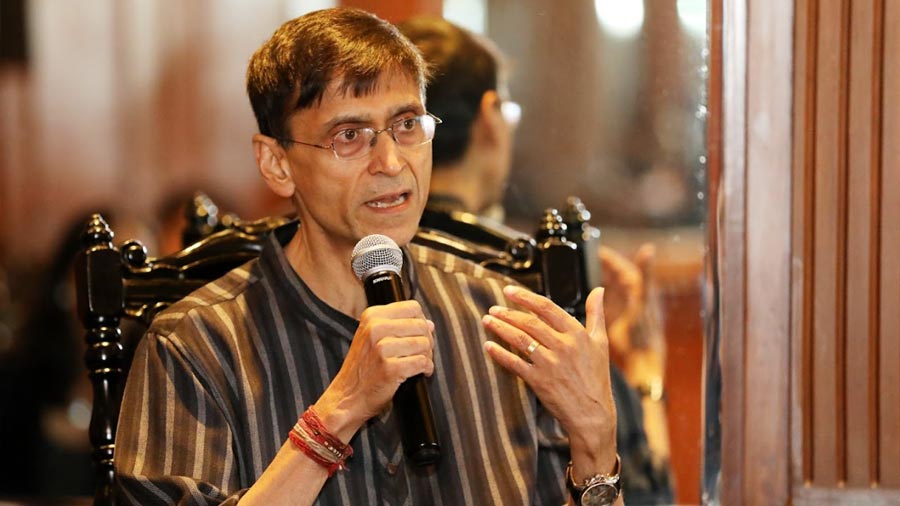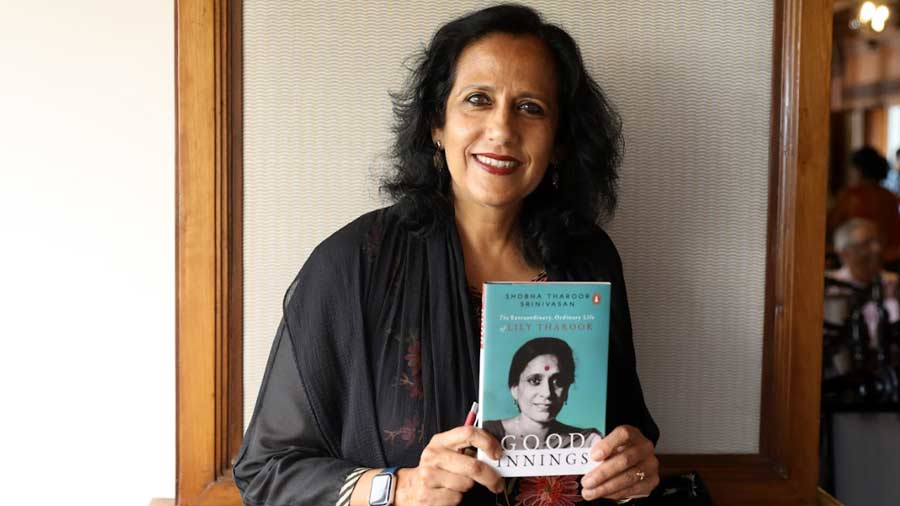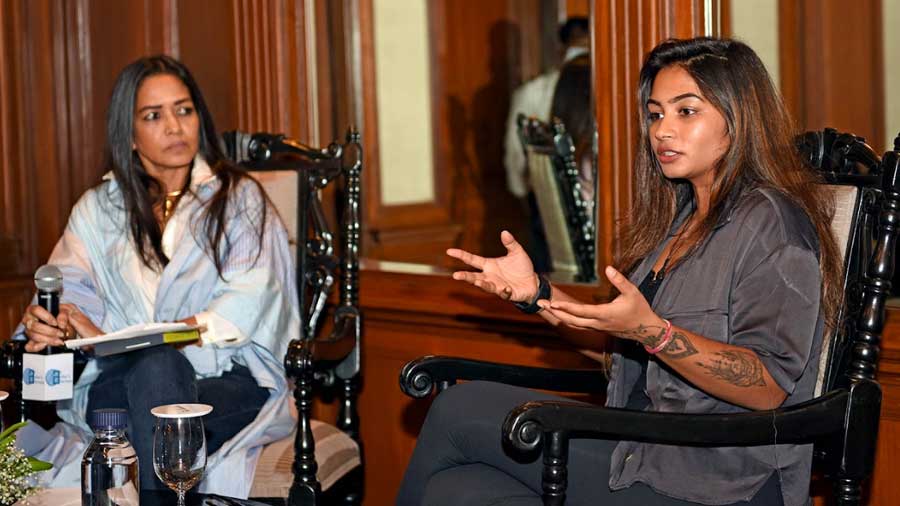“We can be matter and consciousness ourselves – India is the civilisation which has constantly said we are consciousness, and matter itself is a species of consciousness, not the other way around.”
With this sentence, Makarand Paranjape summed up the most recent episode of An Author’s Afternoon, organised at Taj Bengal by Prabha Khaitan Foundation, in association with Shree Cement Limited, with My Kolkata as digital partner. The afternoon was an opportunity for special guests and invitees to know more about the renowned author – a professor of English literature, poet, philosopher and director at the Indian Institute of Advanced Study (IIAS), Shimla – and the ideas and sentiments that went into the creation of his recently published book, JNU: Nationalism and India’s Uncivil War.
On the matter of being a reluctant public intellectual
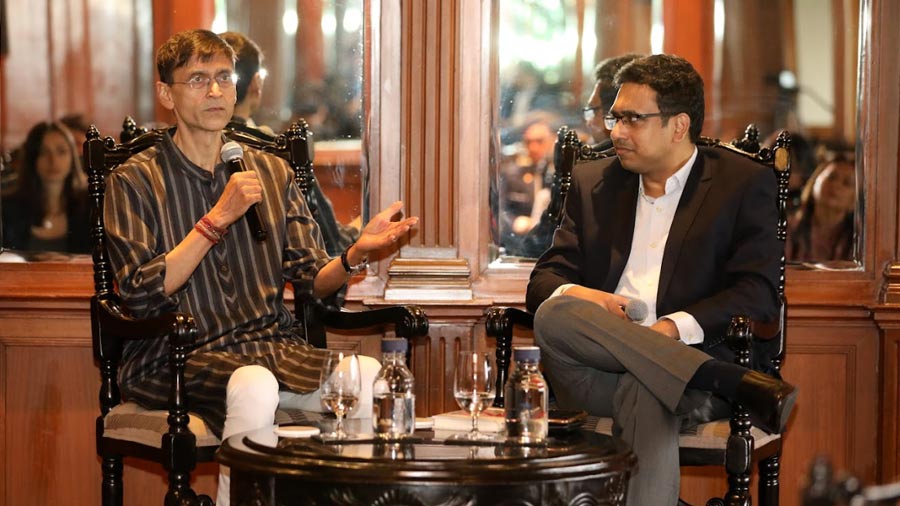
Paranjape in conversation with Harsh Gupta
In conversation with Paranjape was Harsh Gupta, an India-based public markets investor, who writes extensively on economics, finance and politics. Gupta began the session by asking Paranjape to explain why he had referred to himself as a “reluctant public intellectual”. Paranjape responded that it was never his intention to get involved in the politics unravelling at the Jawaharlal Nehru University (JNU). It was something that happened to be thrust upon him as no one else was speaking up. Moreover, he distanced himself from the tag of a “reluctant public intellectual”, as the life of the mind and the curiosity to understand things has always been with him.
Why democracies are messy
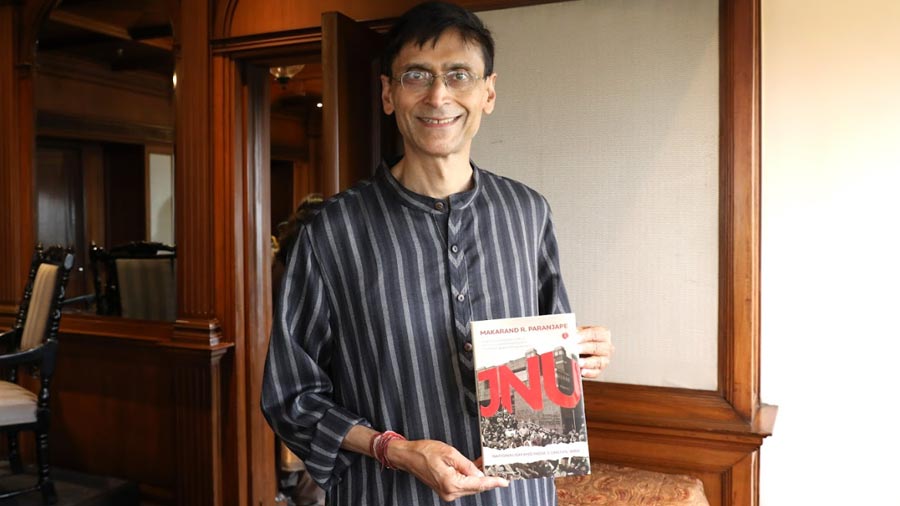
Paranjape with his book, ‘JNU: Nationalism and India’s Uncivil War’
Asked to elaborate on the spread of polarisation and on the crisis being faced by democratic liberalism all over the world, Paranjape said that democracies were “messy”, adding that contemporary democracy “as an institution is facing more threats from the inside than from the outside…[for] the things that make democracy attractive– freedom, dissent, discussion and even debate – are becoming harder and harder…[because] you’re afraid to give offence.”
Focussing on India, Paranjape observed: “In India, among all the different kinds of ills that we go through is the reinforcement of identity politics. The pitfalls for India are the licence quota or permission raj, reservations, subsidy and what may be called as the political correctness identity raj.”
‘Many so-called liberals have been very wishy-washy’
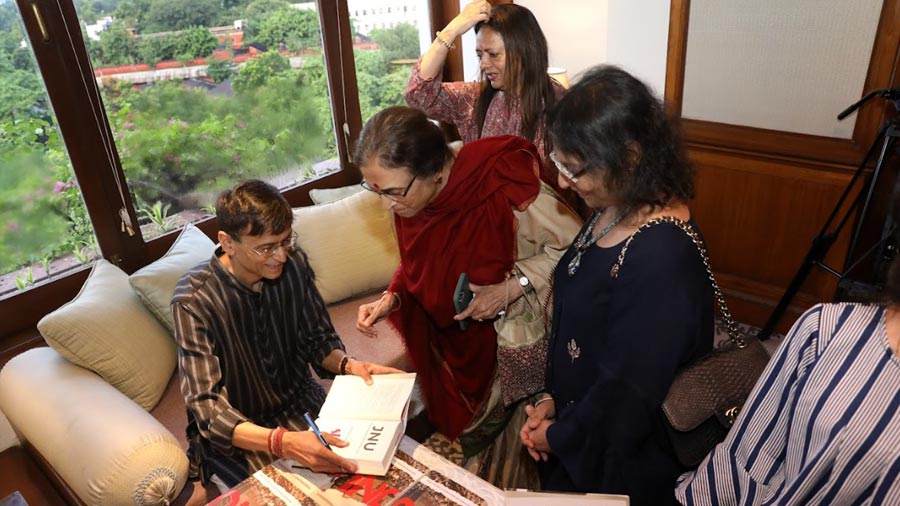
Paranjape signing copies of his book following the discussion
Transitioning from India into the general climate of liberalism, Paranjape noted that “many so-called liberals have been very wishy-washy”, before classifying many of them as “illiberals”. “Liberalism is based on a competition of ideas…where good ideas and good practices should prevail. But nowadays, bad ideas and bad practices are being forced and standardised, institutionalised across the world.”
Asked to explain his position on free speech about the events at JNU, Paranjape stressed his own disregard for British-era sedition and other laws that lock people up and shut them down. On a personal level, he stated that he was never against protests, but his objection was to an entire university being held ransom by a group of students with interests of their own. “You can’t hijack a university, turn it into a political platform against an elected government just because you don’t consider the ideology of the party, which was elected to power to be legitimate,” he said.
More social cohesion is required
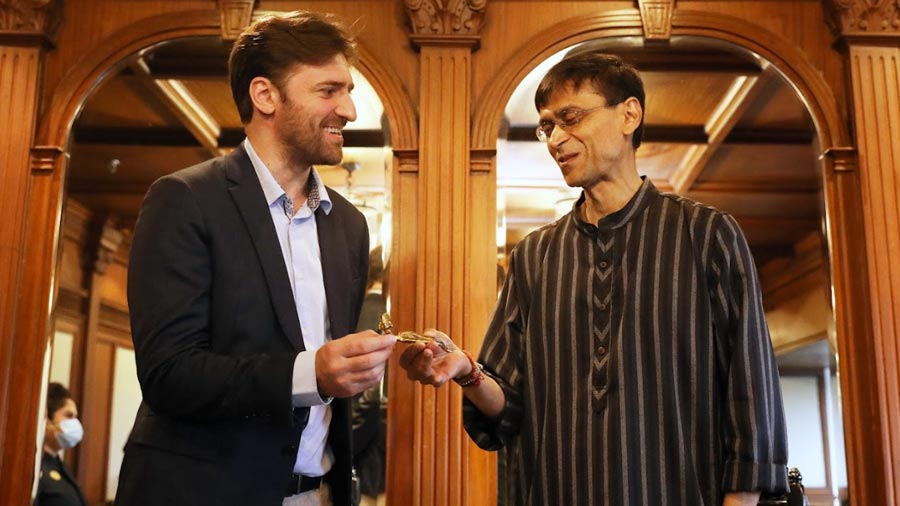
Paranjape being felicitated by Nicolas Facino
In discussing potential solutions aimed at addressing today’s politics, Paranjape said that earlier “societies were blessed with a lot more social cohesion, conversation and conviviality, which needs to be restored today. Everyone must understand and accept that we’re all stakeholders in the Indian republic, and that constant identitarian tension and polarisation is against fraternity.”
Following the dialogue between Paranjape and Gupta and a characteristically engrossing Q&A session with the audience, Nicolas Facino, director of Alliance Francaise du Bengale, and his wife Rina Facino, handed over the mementos to the conversationalists for the afternoon.
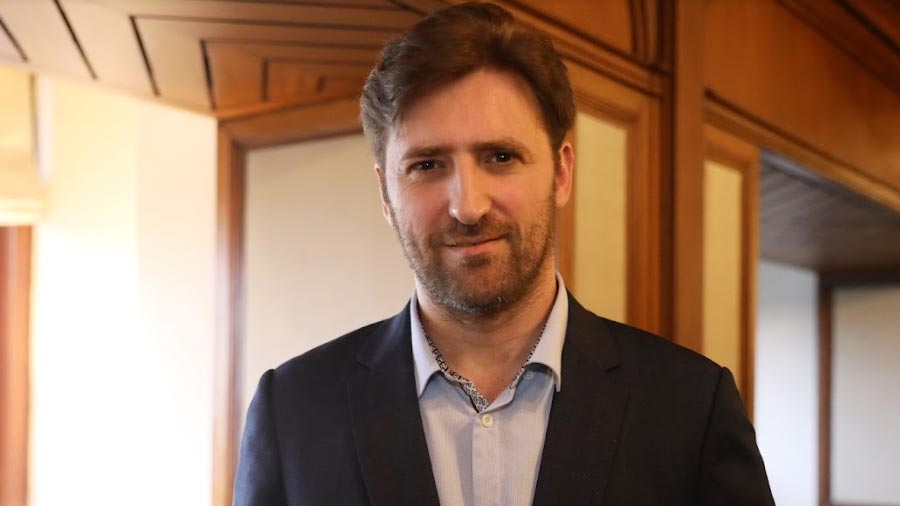
Nicolas Facino

“This is the first time that I’m attending a session of An Author’s Afternoon. I’m glad to have been part of such an interesting lecture in the city. The level of thinking and the research are extremely admirable. Dr Paranjape has a global view and his views on different issues, different regimes and democracy are worth listening to.”
— Nicolas Facino, director, Alliance Francaise du Bengale
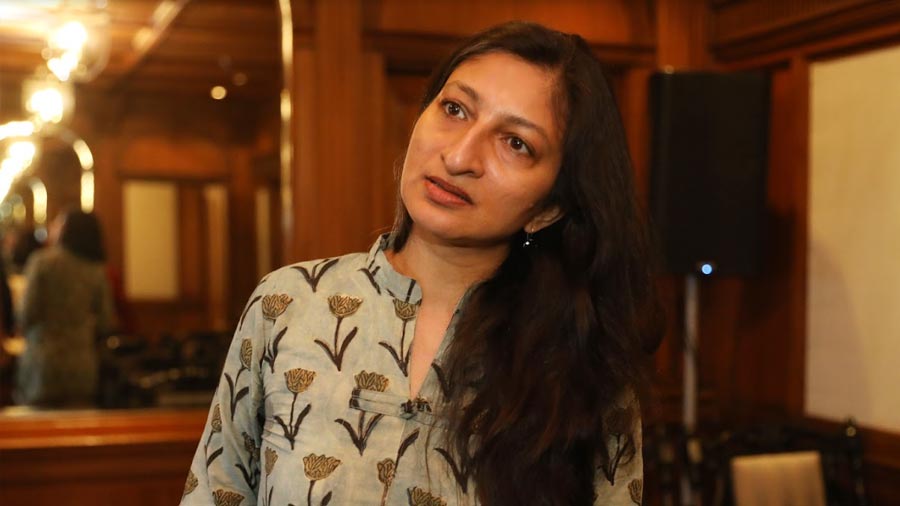
Supriya Newar

